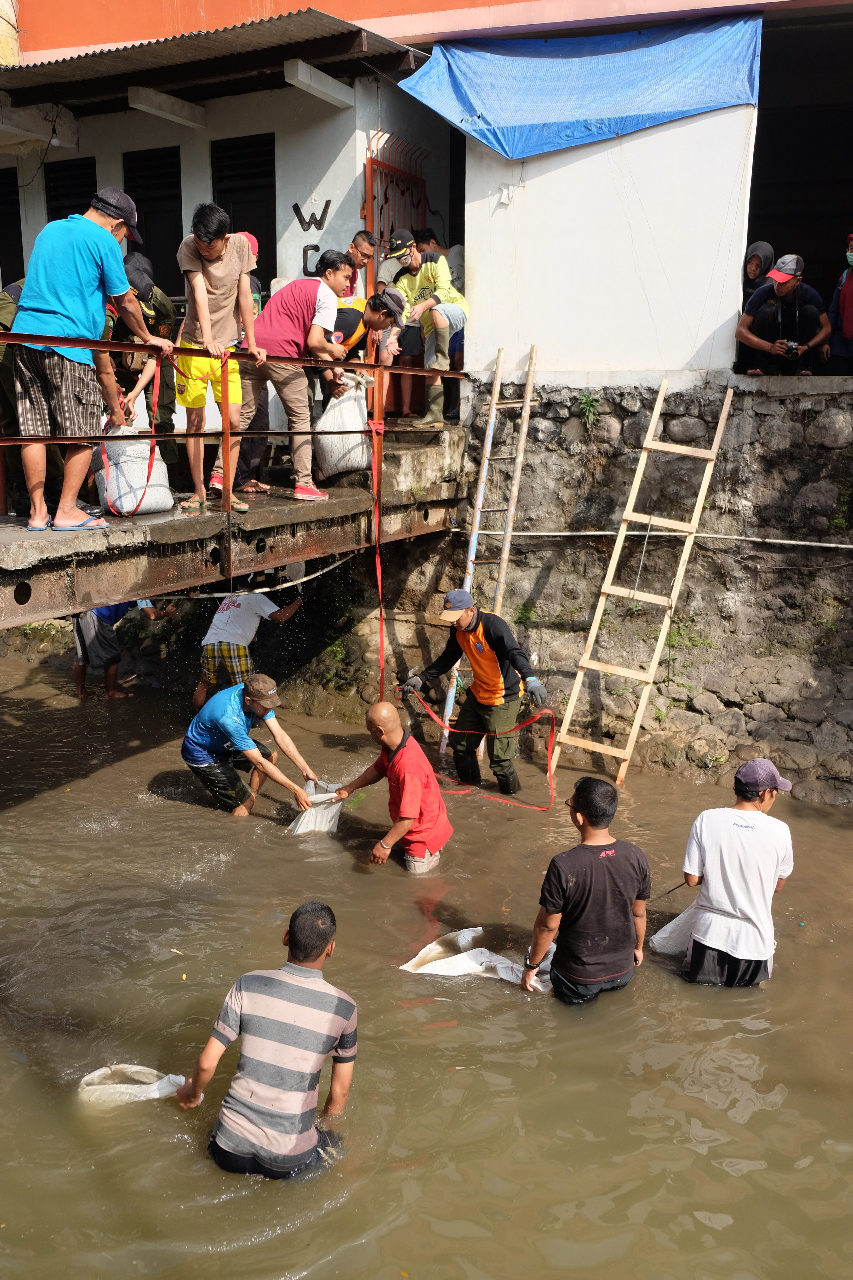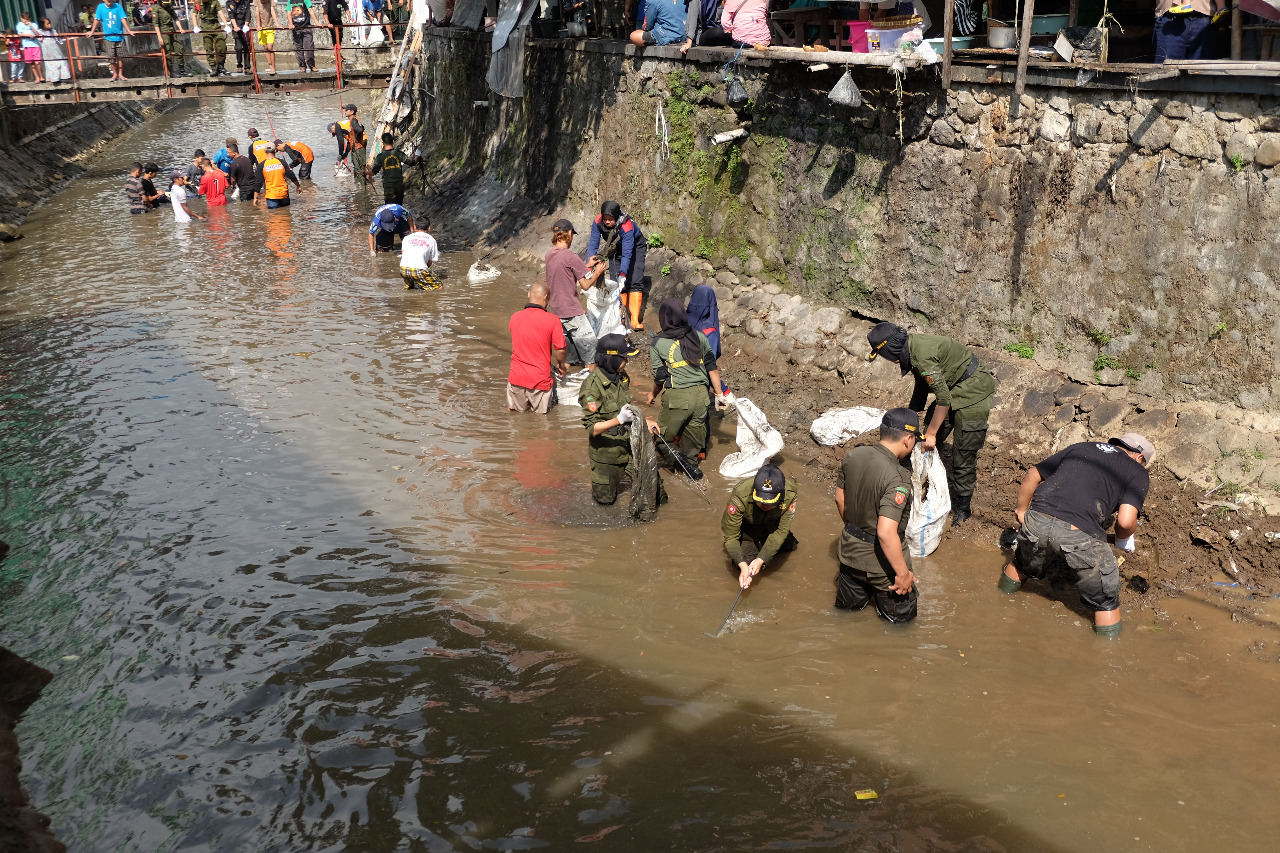Indonesia, along with many other countries, has been facing the Covid-19 pandemic since March 2020. While the potential of outbreak had been detected since mid-January, the initial government’s response was uncertain. Initially, the government dismissed the possibility of actual outbreak. Later, when signs of outbreak started to appear, it came with complex quarantine policy which underwent many changes along its course, further inducing sense of uncertainty among the public. The Indonesian government seems to be indecisive. This indecisiveness can be attributed in greater part to the perceived need to balance the pandemic containment measures while, simultaneously, maintaining favorable investment climate and economic growth. Unfortunately, in the end, Indonesia has achieved none of them. The partial quarantine is hardly a success in curbing the spread of the virus and economic crisis is looming on the horizon. The ratio of transmission still stands >1 while this article is written, and the World Bank economic forecast tells that economic growth could be contracted as low as minus 6 to 7.6%.
Related to the situation, the government announced the termination of ‘partial quarantine’ and the initiation of a ‘New Normal’ in late June. Such a ‘New Normal’ refers to the resumption of normal activities as prior to the pandemic with the addition of Covid-19 prevention protocol. The underlying reasoning is that, such measures are necessary in order to cope with the still raging pandemic as well as anticipating the looming economic crisis. Unfortunately, such reasoning overlooks the central factor that so far has been vital in enabling the Indonesian public to cope with the pandemic and the socio-economic impacts that it entails, namely the ‘solidarity’. It is important to problematize this ‘New Normal’ policy since what is at stake here is not only, “Whether this ‘New Normal’ is the right decision to address both the potential economic crisis and still raging COVID 19?” but, “Whether this ‘new normal’ enables us to build resilience toward future crises?”
The pandemic and the potential economic and social crises that it entails have demonstrated exactly how ‘un-normal’ and fragile our pre-pandemic normality was. Market-mechanisms have proven to be unreliable when it is the ‘normality’ itself that is hit hardest by the crisis. Something of a “panic situation” had its grips on most of the Indonesians during the initial phase of the pandemic when some essential commodities disappeared from the market or were available for a stupefying high-price. These included those commodities perceived to be essential to ward against the virus; such as medical mask and hand-sanitizer. Later, after the government initiated the ‘partial quarantine’ policy, another problem on access to rapid and PCR test services emerges. The spiking number of unemployment and income lost due to the ‘partial quarantine’ policy has meant most Indonesians cannot afford any such service, or if they can, it is only by risking their already precarious situation.
The government has attempted some intervention measures. These interventions, however, are limited in scope and impact due to budgetary and legitimation constraints. Facing such impasse, it has to resort to what most Indonesians have been doing in the moments of crisis, ‘communal self-help and solidarity’, or ‘gotong-royong’. This term ‘gotong-royong’ may refer to different meanings in different circumstances, but in such dire moments, when the government is unable to overcome its limitations, it refers to the situation where the communities have to rely on their own capacities. If the government intervenes, it is less because it is obliged to than as an act of charity. Therefore, the term ‘bantuan’ or ‘aid’ is often used as an adjective in many of government’s intervention programs.

However, it is worthy to ask the question, “Whether gotong-royong in the sense described above comes to the fore only during the time of crisis?” A closer look at the relations between the Indonesian state and its citizens shows that ‘gotong royong’ is rather the norm than exception. The difference among cases of its application across the span of Indonesia’s history has only been on the scope and magnitude of the public reliance on their own capacity. Research on previous economic crisis in 1997-1998 demonstrates similar patterns. However, it is also important to underline that there is nothing ideal in the normalization of gotong-royong. It happens to be the norm more due to the situation where the state never seriously considers citizen and citizenship as ethical matters manifested and institutionalized in its policies. The notion of gotong-royong has often been manipulated to serve as a cover for the state’s impotence and to justify its abandonment of its citizens. Further, there has been no systematic attempt to upscale this ethos of gotong-royong beyond the community level. It is as if the Indonesians are citizens only in legal status, but as citizen subject they belong to their own community.
The political and economic liberalization in 1998, in a glance, seems to acknowledge and institutionalize this sort of state-citizen relations through the concept of ‘good-governance’ and its multiple variants. This, however, is based on the fantasy of individual wealth accumulation instead of solidarity. This is despite the known lesson that the latter has been serving as the ethical support for social cohesiveness at the community level, especially during the moment of crisis. Thus, instead of strengthening the ethical support, the ‘good-governance’ paradigm undermines the very core of the social and replaces it with the ethics of individual accumulation. The Indonesians are thus expected to be ‘a good market citizen’. This had been the ‘normal’ state-citizen relations until the Covid-19 Pandemic hit Indonesia earlier this year. It is also this sort of ‘normal’ that has contributed to make the pandemic and its impacts worse than they could have been. Are we going to resume this sort of ‘normal’ even when it is obvious that the pandemic has not passed and economic crisis is very likely to follow soon?
The aforementioned ‘New normal’ has two possible meanings. On one hand, there is new normal, referring to the currently dominant interpretation: the resumption of pre-pandemic normalcy plus Covid-19 prevention protocol. On the other, there is new normal. The latter refers to new norms based on the lessons drawn from the current Pandemic and the vulnerability and limits of the previous normalcy it exposes. It is on the latter that the current and future attempts should be directed to. It points to the need to acknowledge and institutionalize solidarity based on equality. This implies that the previous norms, which justify inequality based merely on ‘merit’ and the freedom to pursue one’s own conception of the good-life should be re-examined. In moments of crisis, such as the one we find ourselves in now, what is at stake is neither status nor wealth, but the very substance of (social) subjectivity itself.
Joash Tapiheru is a PhD Candidate at the Department of Government, University of Essex, UK.





